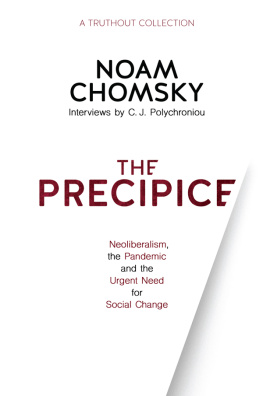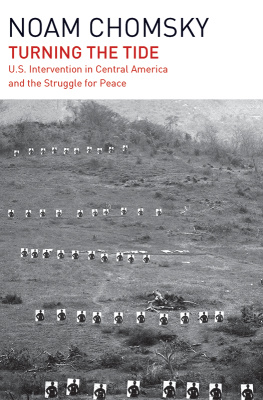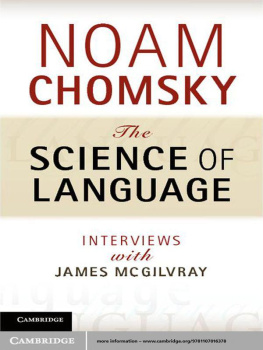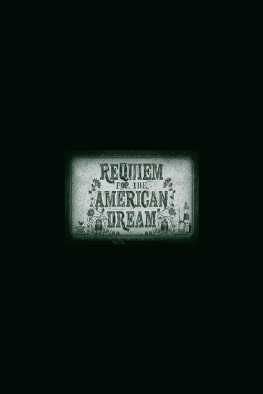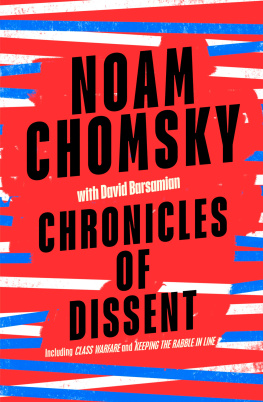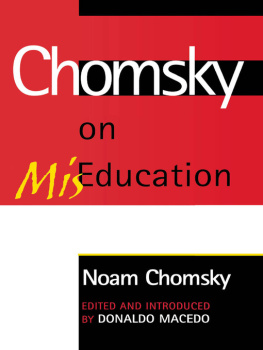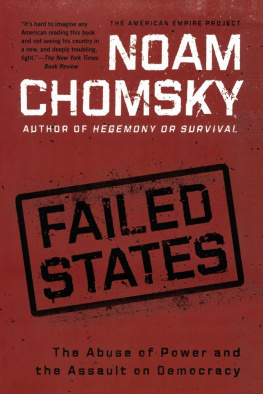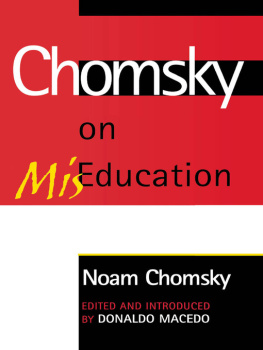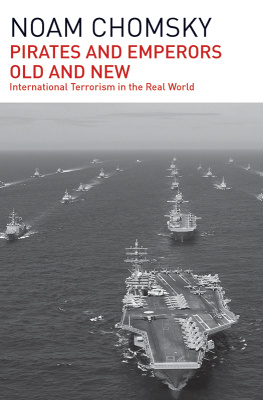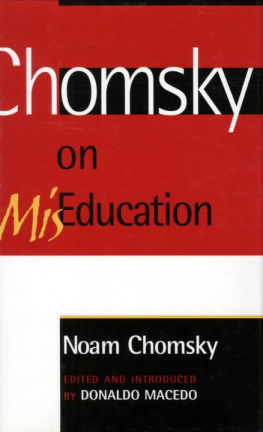Noam Chomsky - Fateful Triangle: The United States, Israel, and the Palestinians
Here you can read online Noam Chomsky - Fateful Triangle: The United States, Israel, and the Palestinians full text of the book (entire story) in english for free. Download pdf and epub, get meaning, cover and reviews about this ebook. City: Chicago, Illinois, year: 1999, publisher: Haymarket Books, genre: Politics. Description of the work, (preface) as well as reviews are available. Best literature library LitArk.com created for fans of good reading and offers a wide selection of genres:
Romance novel
Science fiction
Adventure
Detective
Science
History
Home and family
Prose
Art
Politics
Computer
Non-fiction
Religion
Business
Children
Humor
Choose a favorite category and find really read worthwhile books. Enjoy immersion in the world of imagination, feel the emotions of the characters or learn something new for yourself, make an fascinating discovery.
- Book:Fateful Triangle: The United States, Israel, and the Palestinians
- Author:
- Publisher:Haymarket Books
- Genre:
- Year:1999
- City:Chicago, Illinois
- Rating:5 / 5
- Favourites:Add to favourites
- Your mark:
- 100
- 1
- 2
- 3
- 4
- 5
Fateful Triangle: The United States, Israel, and the Palestinians: summary, description and annotation
We offer to read an annotation, description, summary or preface (depends on what the author of the book "Fateful Triangle: The United States, Israel, and the Palestinians" wrote himself). If you haven't found the necessary information about the book — write in the comments, we will try to find it.
Fateful Triangle: The United States, Israel, and the Palestinians — read online for free the complete book (whole text) full work
Below is the text of the book, divided by pages. System saving the place of the last page read, allows you to conveniently read the book "Fateful Triangle: The United States, Israel, and the Palestinians" online for free, without having to search again every time where you left off. Put a bookmark, and you can go to the page where you finished reading at any time.
Font size:
Interval:
Bookmark:
Fateful Triangle
Copyright 1999 by Noam Chomsky
Original edition copyright 1983 by Noam Chomsky
This edition published in 2014 by
Haymarket Books
P.O. Box 180165
Chicago, IL 60618
773-583-7884
www.haymarketbooks.org
info@haymarketbooks.org
ISBN: 978-1-60846-440-1
Trade distribution:
In the US, Consortium Book Sales and Distribution, www.cbsd.com
In Canada, Publishers Group Canada, www.pgcbooks.ca
In the UK, Turnaround Publisher Services, www.turnaround-uk.com
All other countries, Publishers Group Worldwide, www.pgw.com
This book was published with the generous support of Lannan Foundation and Wallace Action Fund.
Cover design by Josh On. Cover photo shows Israeli air force aircraft flying over the cities of Tel Aviv and Jaffa as Israel celebrates its 65th Independence Day on April 16, 2013. Photo by: Mati Milstein/picture-alliance/dpa/AP Images
Library of Congress Cataloging-in-Publication data is available.
Contents
Contents
Preface to the 2015 Edition ix
Foreword by Edward W. Said xv
Preface xvii
1 Fanning the Flames 1
2 The Origins of the Special Relationship 9
3 Rejectionism and Accommodation 41
4 Israel and Palestine: Historical Backgrounds 95
5 Peace for Galilee 199
6 Aftermath 373
7 The Road to Armageddon 505
8 The Palestinian Uprising 541
9 Limited War in Lebanon 589
10 Washingtons Peace Process 609
Notes 651
Index 717
Rejectionism and Accommodation
1 A Framework for Discussion
What have been the attitudes and policies of the major participants in the Arab-Israeli conflict, and those concerned with it, during the period since 1967, when the U.S.-Israel relationship became established in something like its present form? To approach this question sensibly, we should begin by clarifying what we take to be the valid claims of those who regard the former Palestine as their home. Attitudes towards this question vary widely. I will simply state certain assumptions that I will adopt as a framework for discussion. The first of these is the principle that Israeli Jews and Palestinian Arabs are human beings with human rights, equal rights; more specifically, they have essentially equal rights within the territory of the former Palestine. Each group has a valid right to national self-determination in this territory. Furthermore, I will assume that the State of Israel within its pre-June 1967 borders had, and retains, whatever one regards as the valid rights of any state within the existing international system. One may formulate these principles in various ways, but let us take them to be clear enough to serve at least as a point of departure.
1.1 The Concept of Rejectionism
The term rejectionism is standardly used in the United States to refer to the position of those who deny the right of existence of the State of Israel, or who deny that Jews have the right of national self-determination within the former Palestine; the two positions are not exactly the same because of the question of the status of Israeli Arabs and of Jews outside of Israel, but let us put these questions aside temporarily. Unless we adopt the racist assumption that Jews have certain intrinsic rights that Arabs lack, the term rejectionism should be extended beyond its standard usage, to include also the position of those who deny the right of national self-determination to Palestinian Arabs, the community that constituted 9 / 10 of the population at the time of the first World War, when Great Britain committed itself to the establishment of a national home for the Jewish people in Palestine. I will use the term rejectionism in this non-racist sense. By accommodation, I will mean the position that accepts the basic assumptions of the preceding paragraph. Each position can take various forms, as regards the manner in which national rights are realized, boundaries, etc.
The doctrine of self-styled supporters of Israel, which has largely dominated discussion here, holds that the PLO and the Arab states have been undeviatingly rejectionist (apart from Egypt since 1977), while the U.S. and Israel have sought a peaceful settlement that will recognize the valid claims of all. A more recent version is that the beautiful Israel of earlier years, which was realizing the dream of democratic socialism and becoming a light unto the nations, has been betrayed by Begin and his cohorts, a consequence of the refusal of the Arabs to accept the existence of Israel and the unwavering commitment of the PLOa collection of thugs and gangstersto the destruction of Israel, the murder of innocents, and the intimidation of all moderate opinion in the occupied territories. Like virtually all propaganda systems, this one contains elements of truth. But the real world is rather different, as will quickly be discovered if the historical record is rescued from the oblivion to which it has been consigned.
1.2 The International Consensus
Since 1967, a broad international consensus has taken shape, including Europe, the USSR and most of the nonaligned nations. This consensus initially advocated a political settlement along approximately the pre-June 1967 borders, with security guarantees, recognized borders, and various devices to help assure peace and tranquility; it envisioned the gradual integration of Israel into the region while it would remain, in essence, a Western European society. This is the way the basic international document, UN Security Council Resolution 242, has been understood throughout most of the world, though its actual wording was left vague so that agreement on it could be achieved. As Jon Kimche comments: Everybody subscribed to it and no one believed in it, since neither Arabs nor Israelis, Russians or Americans could agree on what the Resolution meant.
Note that this consensus was rejectionist, in that it denied the national rights of Palestinian Arabs, referring to them solely in the context of a refugee problem. For this reason, the PLO has refused to accept the resolution. This refusal may be a tactical error, but it is easy to understand its motivation. One would hardly have expected the World Zionist Organization, in 1947, to have accepted a UN resolution concerning Palestine that referred to Jewish interests only in terms of a refugee problem, denying any claim to national rights and any status to the Zionist movement or its organizations.
The U.S. has refused any direct contacts with the PLO on the grounds of its unwillingness to accept UN 242 and to recognize the existence of the State of Israel, basing this refusal on a Memorandum of Agreement concluded with Israel by Secretary of State Kissinger in September 1975. This policy raises two questions. The narrower one is that the status of the Memorandum is dubious. In testimony before the Senate Foreign Relations Committee, Kissinger specified that its terms are not binding commitments of the United States and warned against creating such commitments. Furthermore, Congress specifically dissociated itself from the related memoranda of agreement, including this one. More broadly, whatever one thinks about the attitude of the PLO towards UN 242, it is quite clear, as we shall see, that it has been far more forthcoming than either Israel or the U.S. with regard to an accommodationist settlement. Nevertheless, the refusal of Israel to recognize the PLO, or to accept Palestinian national rights in any meaningful form, is not invoked as a reason to refuse contacts with Israel. Unless we adopt rejectionist assumptions, then, the argument supporting the American refusal to enter into direct contacts with the PLO has no force.
From the mid-1970s, the terms of the international consensus have been modified in one significant respect: the right of the Palestinians to national self-determination has been recognized, and the consensus now includes the concept of a Palestinian state in the West Bank and Gaza Strip, with perhaps some minor border rectifications. The newer form of the international consensus overcomes the earlier rejectionism and falls under the rubric of accommodation in the sense of this term described above. Within the international consensus, there has been little discussion of whether such a settlementhenceforth, a two-state settlementreflects higher demands of abstract justice; rather, it has been taken to be a politically realistic solution that would maximize the chances for peace and security for the inhabitants of the former Palestine, for the region, and for the world, and that satisfies the valid claims of the two major parties as well as is possible under existing conditions. One can imagine various subsequent developments through peaceful means and mutual consent towards a form of federation or other arrangements.
Next pageFont size:
Interval:
Bookmark:
Similar books «Fateful Triangle: The United States, Israel, and the Palestinians»
Look at similar books to Fateful Triangle: The United States, Israel, and the Palestinians. We have selected literature similar in name and meaning in the hope of providing readers with more options to find new, interesting, not yet read works.
Discussion, reviews of the book Fateful Triangle: The United States, Israel, and the Palestinians and just readers' own opinions. Leave your comments, write what you think about the work, its meaning or the main characters. Specify what exactly you liked and what you didn't like, and why you think so.


